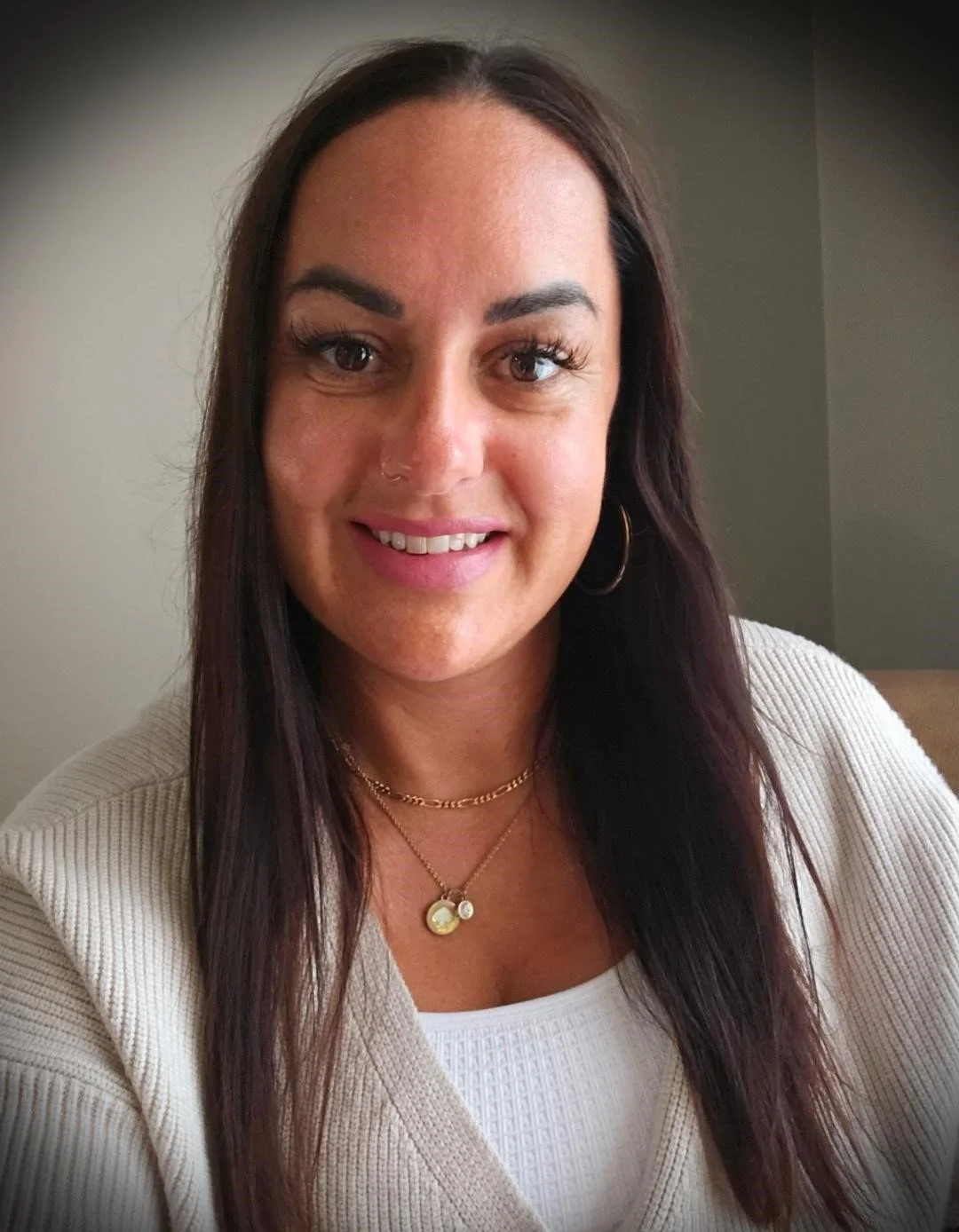
PTSD Therapists Near Me. Online Trauma Therapy in Ontario.
Our PTSD therapists help you to regain control of your emotions impacted by trauma. With personalized care, you can move forward with your life.
Your Path to Healing from a Past Trauma Starts With Online Trauma Therapy
We help people overcome PTSD and the aftermath of trauma. We use therapies that work so you can end living in the past and start living your life.
We know how trauma can shatter your sense of being so our PTSD therapists try to get you feeling better as quickly as possible. We will help you to rebuild your story around what happened. Get started with online trauma therapy today by booking a free consultation!
“Recovery from PTSD is not about erasing the scars; it’s about rewriting the story with resilience and reclaiming the power that trauma once stole.”
What Types of Therapy are Best for PTSD and Trauma?
The American Psychological Association (APA)recommends 4 therapy options for unhealed trauma or post-trauma stress disorder (PTSD). We offer all 4 of these options:
Cognitive Behavioural Therapy (CBT)
Cognitive Processing Therapy (CPT)
Prolonged Exposure (PE)
Eye movement Desensitization and Reprocessing (EMDR)
Learn more about CPT vs PE: Which Therapy is Right for You? and EMDR vs CBT therapy.
These therapies will teach you skills to deal with your past traumas. By processing what happened, you can start to live your life and stop living in the past.
Why Choose Our Online Clinic for Trauma Therapy?
Virtual trauma counselling is as effective as in-person. This is why we offer personalized counselling services from the comfort of your home.
Our online trauma therapists have received training to become trauma experts. We offer treatments that work and can get you feeling better in as little as 8-10 sessions. Some people respond sooner, and some people need a few more therapy sessions.
Our psychotherapists are passionate about what they do. They will create a safe space while at the same time challenging you to find recovery from your past trauma. They will teach you coping strategies and help you heal from the inside out.
We have a variety of trauma specialists to choose from! Our Clinical Directors will match you based on your symptoms and preferences.
You can learn about our social workers, registered psychotherapists and clinical psychologists.
Meet our Online Trauma Therapists
-

Celissa Vipond
RSW Psychotherapist
-

Melissa Lindstrom
RSW Psychotherapist
-

Alpar Szotyori
Psychotherapist
-

Dr. Emily MacQuarrie
Supervised Practice
-

Dr. Lauren Steinart
Clinical Psychologist
-

Jessie Daniel
RSW Psychotherapist
-

Shahram Kavehsemnani
RN Psychotherapist
-

Catherine Sullivan
RSW Psychotherapist
-

Angela Hammond
RSW Psychotherapist
-

Jennifer O’Connor
Psychotherapist
-

Chris Conboy
Psychotherapist
-

Crystal Pacheco
RSW Psychotherapist
-
Danielle Pearson
RSW Psychotherapist
-

Christa Ritchie
RSW Psychotherapist
Signs and Symptoms of PTSD or an Unhealed Trauma
Intrusive thoughts, memories or flashbacks of the traumatic event
Nightmares of the traumatic event
Avoidance of triggers or reminders of the traumatic event
Feelings of detachment or emotional numbness
Hypervigilance or constantly being on guard
Difficulty sleeping or concentrating
Irritability, anger, or outbursts of aggression
Feelings of guilt or shame
Negative changes in beliefs or feelings about oneself, others, or the world
Loss of interest in activities that you used to enjoyed
Reckless or self-destructive behaviour
What is PTSD? (Source: PsychHub)
Most people will experience these symptoms after trauma and they will go away over time.
If a few months go by after your trauma and you still have these symptoms, you may want to reach out for help. For more information: How do I know if I need therapy for a past trauma?
Cognitive Processing Therapy (CPT) - Counselling for Trauma and PTSD
Cognitive Processing Therapy (CPT) is a specialized type of CBT that can help you get your life back on track.
While counselling can't erase your traumatic memories, it can help you feel safe and confident again.
What is Cognitive Processing Therapy (CPT) for PTSD? Source: Psych Hub
-
CPT usually needs 12 sessions, once a week or every two weeks. Did you know that you can feel better in as little as a few weeks if you did two sessions every week?do
-
Many of our therapists hold CPT certification, so you can relax knowing you're in good hands. It's time to take back control of your life and start healing with trauma treatment in Ontario.
Get started with a therapist near you by booking a free consultation on our website.
-
The Client Workbook for CPT is “Getting Unstuck from PTSD: Using Cognitive Processing Therapy to Guide Your Recovery” (Resick et. al, 2023).
You can also visit our blog post “The Power of Cognitive Processing Therapy (CPT) for PTSD” and Trauma and PTSD stuck points.
Additional CPT Resources from the authors
Prolonged Exposure (PE) - Counselling for Trauma & PTSD
Have you been trying to cope with trauma by pushing it away, only to find that it keeps coming back to haunt you? You're not alone.
Avoiding your trauma might feel right at the time, but it can make memories scarier over the long term because they're not dealt with. That's where prolonged exposure (PE) comes in.
PTSD and Prolonged Exposure (PE) (Source: Psych Hub)
What does Prolonged Exposure (PE) involve?
PE is a special form of PTSD treatment to help you feel better. PE will help you to:
Process the trauma by revisiting the memories in a safe and supportive environment.
By talking about what happened, you will start thoughts will start to change.
When you stop avoiding and start processing, your emotions improve drastically. Trauma emotions tend to burn out over time (if you let them). You can think of your feelings like a fire burning out over time.
How many PE sessions will it take?
PE can take as little as 6 treatment sessions or as many as 16, depending on your unique needs and circumstances. Each weekly session is about 60-90 minutes long. Don't let the past control your present any longer. It's time to take back control of your life with the help of PE therapy.
Eye Movement Desensitization and Reprocessing (EMDR) for Past Memories
Eye Movement Desensitization and Reprocessing (EMDR) therapy, is a type of counselling used to help people who have experienced trauma. It's a tool to help your brain process difficult memories and feelings.
During EMDR therapy, you might recall upsetting memories while also concentrating on something else. For instance, you may focus on the memory while moving your eyes or tapping your hands. This helps your brain reprocess those memories, so they don't bother you as much.
EMDR can be helpful for people struggling with things like PTSD (post-traumatic stress disorder) or other traumas.
What is EMDR? (Source: Psych Hub)
How long will EMDR therapy take?
One of the most appealing aspects of EMDR therapy is its efficiency. Treatment ranges from 6-16 sessions, depending on individual needs and circumstances.
Each session lasts between 60 to 90 minutes. It's time to reclaim control over your life and no longer let memories dictate your present.
Learn about the benefits of EMDR, the differences between CBT and EMDR, and the pros and cons of virtual versus in-person therapy.
Examples of Trauma Events
Many people think that their trauma “wasn’t bad enough”. Yet, lots of situations can lead to PTSD including:
Sexual behaviours or violence (e.g. rape, inappropriate touching, childhood sexual abuse, etc.)
Grief and loss (e.g. losing a loved one in a tragic accident or to an accidental drug overdose)
Medical situations (e.g. waking up in the middle of surgery)
Physical abuse including intimate partner violence (IPV)
Witnessing a suicide or losing a family member to suicide
Any life-threatening situations (e.g. house fire, drowning, break, kidnapping, etc.)
Witnessing someone die, or near death, or seriously injured
Keep in mind that this list doesn't cover all traumas, and many other tough situations might cause PTSD. If you are struggling with past trauma, you may still benefit from CBT or EMDR.
You may also want to read Who Can Develop PTSD? and Childhood Trauma
High-Risk Professions that can Lead to PTSD
Did you know that certain professions can put individuals at a higher risk of developing post-traumatic stress disorder (PTSD)?
It's true - high-risk professions such as emergency responders (e.g. police officers, paramedics, firefighters), military personnel, and healthcare workers are more likely to experience traumatic events that can lead to PTSD. Learn about PTSD and first responders.
We also get many referrals for teachers who have experienced assault in the workplace. It's important to recognize the risks associated with these professions and take steps to support those affected by them. Learn about teachers and mental health.
There are Three Main Types of Trauma
Acute Trauma
Acute trauma happens when you go through a single, intense event. For instace being in a serious car accident.
Although Trauma comes in different forms, we can categorize it into 3 types. This can help us better understand you and what you are going through. Our therapies can help with all three types of trauma!
Chronic Trauma
Chronic trauma is when you deal with stressful situations repeatedly over a long time. For instance, being bullied every day at school.
Complex Trauma
Complex trauma means experiencing multiple traumatic events over a long period and for many years.
Meet our Clinical Directors
Celissa Vipond (MSW) and Melissa Lindstrom (BSW) are registered social workers (RSW) who founded Virtual CBT Psychotherapy in 2021.
They will meet with you for your free consultation and discuss if our clinic suits you. Both Celissa and Melissa specialize in providing care to those with a history of trauma or PTSD. Book a free consultation to start your trauma-healing journey today.
Frequently Asked Questions (FAQs) About Trauma & PTSD Therapy
-
Sometimes people experience more trauma symptoms in the first few sessions of treatment. But it is only minimal and you will likely start to feel better if you continue to process your thoughts and feelings.
We are here to help you through the process and create a safe space. Would it be worth it to feel a little worse (for 1-3 weeks) so that you can move on with your life?
-
Booking a free consultation with us can be useful. This way, we can create a personalized treatment plan just for you. While we believe in using proven methods, we also understand that everyone is different.
-
If you have a clear memory of your trauma, you can do PE or CPT. If you don’t have a clear memory, CPT may be more suitable. It's best to book a free consultation with us so that we can better understand your unique situation.
If you are unsure that you have a trauma, please note that we do not go “looking for” uncovered memories.
-
We can track your symptoms every week using assessments. They will measure your symptoms of trauma (PTSD) and depression.
-
Cognitive Processing Therapy (CPT) and Prolonged Exposure (PE) are the most well-researched treatments for trauma and PTSD. Although you have done CBT in the past, these therapies are different.
We suggest booking a free consultation with us to discuss your concerns.
-
Research on PTSD treatment has never excluded people with complex trauma histories.
If you are physically safe (e.g. no longer in a traumatic situation) and pose no risk to yourself or others (e.g. suicidal with a plan), we would suggest proceeding with therapy.
If you are unsure, you can book a free consultation with us to discuss your concerns about doing PTSD treatment with a complex trauma history.
-
If you prefer in-person counselling, you can find a therapist by searching for one using:
Canadian Association of Cognitive and Behavioural Therapies (CACBT).
-
Your therapist will ask you about your mental health history and symptoms. The therapist will also ask about your feelings, thoughts, and behaviours. They will try to understand how the trauma impacts your life today.
It's important, to be open and honest during your first therapy session so your therapist can understand your condition. Being open and honest will also allow you to develop an effective therapy plan.
Your counsellor may also give you information about trauma and PTSD.
You may also discuss any concerns or questions you have about the therapy process.
Book a free consultation to learn how our clinic can help you overcome the aftermath of trauma. We will meet with you to make sure that our clinic is a good fit for you and then match you with a therapist.
-
Research suggests that flashbacks are a common symptom of PTSD. One study suggests that up to 60-80% of people with PTSD experience intrusive memories or flashbacks.
Another study found that about 30-40% of people with PTSD experience flashbacks. It's important to note that PTSD is a complex disorder, and not everyone who experiences a traumatic event will develop the condition, and not everyone with PTSD will experience flashbacks. The severity and duration of symptoms can also vary between individuals.
References Herman, J. L. (1992). Trauma and Recovery: The Aftermath of Violence--from Domestic Abuse to Political Terror. Basic Books.











